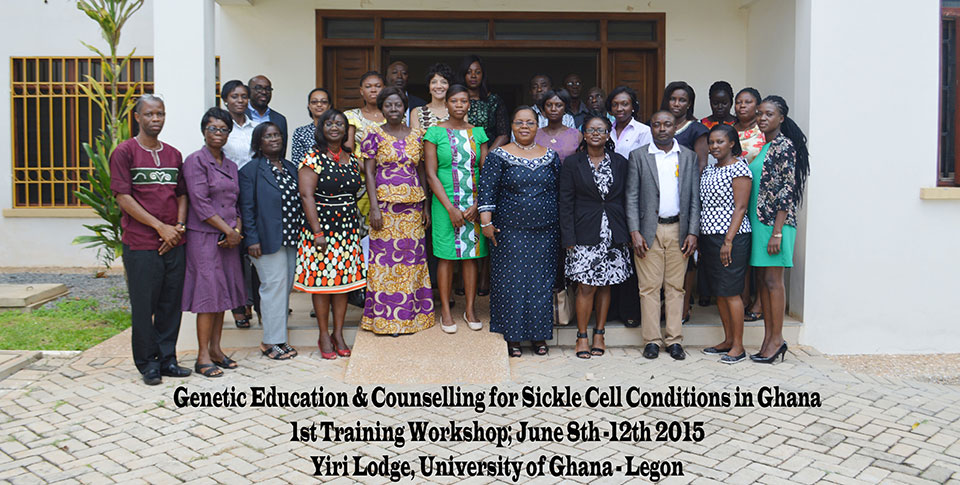 APHL supports international partners with technical assistance in newborn screening for sickle cell disease.
APHL supports international partners with technical assistance in newborn screening for sickle cell disease.
Sub-Saharan Africa carries the greatest global burden of sickle cell disease, with 71% of the over 300,000 annual affected births worldwide. Childhood mortality for individuals diagnosed in sub-Saharan African is estimated to be as high as 80%. However, the World Health Organization estimates that 70% of these deaths are preventable. Newborn screening allows early identification of infants with sickle cell disease, so that simple, cost-effective interventions can be implemented, resulting in a dramatic impact on morbidity and mortality.
Ghana Sickle Cell Disease Initiative
APHL is working with CDC and the Sickle Cell Foundation of Ghana to provide technical assistance with pre- and post-newborn screening activities, including needs assessment, genetic counseling and education of parents and health workers.
APHL launched the initiative by convening a working group of international experts from the UK, Ghana, Nigeria and the US to guide APHL and CDC with post-newborn screening activities in Ghana. Working group members conducted a formative research study in 2011 to assess knowledge, attitudes and beliefs about sickle cell disease and sickle cell trait among parents and health workers and to evaluate community needs for screening, diagnosis and management of sickle cell disease. The survey identified the need for additional genetic counselors specializing in sickle cell disease to provide pre- and post-counseling services to residents.
Based on these findings, APHL conducted a development workshop in 2013 for a Sickle Cell Counselor Training and Certification Program in Ghana. Participants outlined strategies for the design and implementation of a culturally appropriate, scientifically accurate training and certification program. In 2015 APHL developed the program curriculum and trained 15 genetic counselors using the Genetic Education and Counselling for Sickle Cell Conditions in Ghana (GENECIS-Ghana) model. APHL is currently planning a second training workshop scheduled for July 2016.